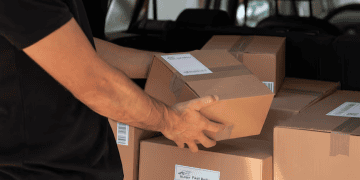Vietnam will charge a value-added tax (VAT) on imported items that are worth less than 1 million VND (about $39.40) and sent through express delivery services. This change ends the previous rule that exempted these low-cost imports from tax. The goal is to level the playing field between local products and imports, and to boost the government’s revenue.
Why This Change?
The choice to implement VAT on low-value imports is part of Vietnam’s effort to align its tax laws with those of other countries and to ensure that the tax system is consistent. It also fits into the government’s broader strategy to expand the tax base.
Expected Revenue and Economic Effects
The General Department of Customs (GDC) believes that applying a 10% VAT on these low-value goods could raise about 2.7 trillion VND each year for the government. This policy is also intended to encourage local production by fostering fair competition between local and imported items.
Challenges in Implementation
The GDC is aware that rolling out this new tax will come with some challenges. Companies and shoppers will need to adjust, as low-value goods shipped through express services will now be taxed under the new rules. During the upgrade of the customs system, businesses will need to provide more detailed information about their shipments to help with VAT collection. Customs workers will have more work to do while the system updates, as they will manually process tax declarations and confirm payments, making it harder to manage tax records.
Global Perspective
Vietnam’s decision fits a global trend where many countries are starting to charge VAT on low-value imports to protect local businesses and prevent losing tax revenue.
In conclusion, Vietnam’s new VAT on low-value imported goods represents an important change in its tax policy aimed at increasing government income and supporting local industries. Although there may be challenges in enforcing this policy, it aligns with international practices and shows Vietnam’s dedication to a fair and thorough tax system.
Discover comprehensive supply chain report news insights at The Supply Chain Report. For international trade resources, visit ADAMftd.com.
#VietnamVATPolicy #ImportTaxChange #LowValueGoods #VietnamEconomy #CustomsRegulations #TaxPolicyUpdate #FairTrade #EconomicReforms #VATOnImports #LocalIndustryBoost















